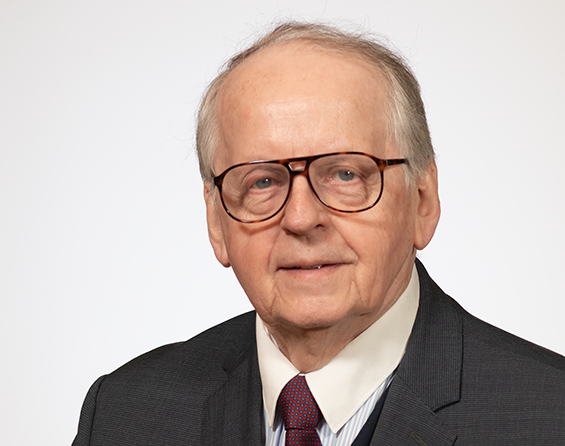
AI Profiileerimine: Enn Eesmaa
Päevakorrapunkte: 14
420/420 profiling (100.0%)
Sõnavõtte kokku: 19
Analüüsi periood: 2024-03-13 - 2025-09-24
Poliitiline positsioon
Poliitiku positsioon on domineerivalt suunatud rahvusvahelisele julgeolekule ja kaitsekoostööle, toetades tugevalt Eesti osalemist EL-i missioonidel (nt Mosambiik) ning rõhutades regionaalse koostöö ja Põhjala armee loomise arutelu vajadust. Tema poliitiline raamistik on valdavalt poliitika- ja väärtuspõhine, keskendudes rahvusvahelistele kohustustele, solidaarsusele ja läbipaistvusele, kuid samas on oluline ka järjekindel menetluslik ja õiguslik täpsus Riigikogu tööprotseduuride ja seadusandluse korrektsuse tagamisel. Siseriiklikult on ta kriitiline valitsuspartei (Reformierakonna) tegevuse ebaefektiivsuse suhtes palgaküsimuste lahendamisel ning väljendab tugevaid väärtuspõhiseid vastuseise Tallinna linnaplaneerimise ja muinsuskaitse küsimustes.
Teemade ekspertiis
Poliitiku asjatundlikkus on selgelt ja järjepidevalt kontsentreerunud riigikaitse ja julgeolekupoliitika valdkonda, hõlmates nii kaitseväeteenistuse seaduse detailset tundmist kui ka rahvusvaheliste sõjaliste missioonide õiguslikke ja finantsilisi aluseid. Teadmisi demonstreeritakse sügavalt tehnilisel tasandil, kasutades spetsiifilist seadusandlikku terminoloogiat, paragrahvi viiteid ning täpseid andmeid (nt rahaline panus, missioonide asukohad). Lisaks sisulisele kaitsepoliitikale on kõneleja tugev ekspert Riigikogu menetlusprotseduurides, sealhulgas Riigikaitsekomisjoni töös, kodu- ja töökorra seaduses ning võrdlevas õigusruumi analüüsis (Läti, Leedu).
Retoorriline stiil
Poliitiku retooriline stiil on läbivalt äärmiselt formaalne, ametlik ja protseduuriline, olles eriti ilmne juhtivkomisjoni ettekandja rollis. Kõneleja toetub tugevalt loogilisele ja faktipõhisele argumentatsioonile, viidates sageli seadustele, protokollidele ja institutsioonilistele otsustele, ning väldib järjepidevalt emotsionaalseid apelle. Kuigi valdav toon on lugupidav ja neutraalne, kasutatakse kriitika esitamisel analüütilist vastutuse nõudmist ja retoorilisi küsimusi, rõhutades samal ajal oma kohustust tagada avalik teadlikkus keeruliste teemade osas.
Tegevusmustrid
Poliitiku tegevusmuster on selgelt suunatud Riigikogu sisetööle, eriti Riigikaitsekomisjoni intensiivsele tegevusele, kus ta täidab korduvalt ettekandja ja refereerija rolli, juhtides keeruliste seaduseelnõude menetlust ja suunates neid hääletusele. Tema tegevust iseloomustab kõrge protseduuriline aktiivsus, sealhulgas seadusloome tähtaegade määramine ning detailsete menetluskäikude ettekandmine täiskogu ees. Lisaks seadusandlikule detailitööle osaleb ta aktiivselt debattides küsimuste esitajana ning täidab esindusfunktsioone, juhtides Riigikogu istungeid ja osaledes rahvusvahelistel kohtumistel ning kõrgetasemelistes välispoliitilistes diskussioonides.
Opositsiooni hoiak
Poliitiku vastandumise profiil on valdavalt protseduuriline ja sisuline, keskendudes parlamendi menetluslikele puudujääkidele (nt läbipaistmatus, dialoogi takistamine ja obstruktsioonilised taktikad) ning konkreetsete poliitikate ebaõnnestunud teostamisele. Peamised kriitika sihtmärgid on Reformierakond (poliitika ebaõnnestumiste eest) ja EKRE fraktsioon (menetluslike viivituste ja eelnõude ebatäpsuse eest). Kriitika on järjepidevalt suunatud poliitika või protsessi, mitte isikute vastu, olles enamasti analüütiline ja nõudes selgitusi, kuigi teatud juhtudel (nt esteetilise sobimatuse teemadel) väljendub ka intensiivne vastuseis.
Koostööstiil
Poliitiku koostööstiil on valdavalt konsensuslik ja institutsionaalne, keskendudes üksmeelsete otsuste saavutamisele Riigikaitsekomisjonis ning tihedale koostööle vastavate ministeeriumide ja ametnikega. Siseriiklikult on suhtlus kolleegidega kollegiaalne ja lugupidav, väljendades tänu initsiatiivi eest ja soodustades dialoogi, kuigi küsimuste esitamisel nõutakse ka vastutust. Rahvusvahelisel tasandil rõhutatakse aktiivselt regionaalset solidaarsust ja kaitsekoostöö arendamist Balti, Põhjamaade ja teiste Läänemere piirkonna partneritega.
Regionaalne fookus
Poliitiku regionaalne fookus on väga dünaamiline, ulatudes lühikestest intensiivselt lokaalsetest (Tallinna linna areng, kultuuriasutused) ja puhtalt riiklikest perioodidest laiade rahvusvaheliste teemadeni. Ülekaalukalt domineerib makro-regionaalne suunitlus, mis keskendub Läänemere piirkonna julgeolekule ja kaitsekoostööle, hõlmates Balti riike, Põhjamaid, Poolat ja Saksamaad. Lisaks lähiregioonile rõhutatakse korduvalt Eesti panust kaugematesse rahvusvahelistesse kohustustesse, eriti Euroopa Liidu sõjalistel abistamismissioonidel Aafrikas (Mosambiik), mis näitab globaalsete kohustuste tähtsust.
Majandusvaated
Poliitiku majandusvaated on andmete nappuse tõttu fragmenteeritud, kuid väljendunud seisukohad jagunevad sotsiaalsete ja fiskaalsete teemade vahel. Ühest küljest keskendutakse tööjõu olukorrale, palkadele ja sotsiaalsetele aspektidele, viidates murele tööjõu õiglase tasustamise ja ebapiisavate lahenduste pärast. Teisalt rõhutatakse tugevalt eelarvelist täpsust, läbipaistvust ja fiskaalset korrektsust riiklike kulutuste osas, näidates pühendumust rangele fiskaaldistsipliinile. Detailsemad seisukohad maksude, kaubanduse või laiapõhjalise majanduskasvu reguleerimise osas puuduvad.
Sotsiaalsed küsimused
Poliitiku sotsiaalsete teemade profiil on mitmekesine ja pragmaatiline, vältides tüüpilisi ideoloogilisi vastandusi. Fookus on suunatud konkreetsetele probleemidele, nagu majanduslik õiglus (palkade ebapiisavus), kultuuripärandi kaitse linnaruumis ja sotsiaalne turvalisus. Eriti rõhutatakse relvade hoiustamise regulatsiooni reservväelaste seas, tasakaalustades turvalisuse tagamise ja õigusloome nõudeid. Hilisemas perioodis laieneb tegevus rahvusvahelisele tasandile, keskendudes inimõiguste alasele väljaõppele.
Seadusandlik fookus
Poliitiku seadusandlik fookus on selgelt domineerivalt suunatud riigikaitse ja julgeolekupoliitika teemadele, kus ta tegutseb järjepidevalt tugeva toetaja, ettekandja ja menetluse eestvedajana, tagades kaitseväe välismissioonide (nt Mosambiik) ja kaitsealaste eelnõude kiire lõpuleviimise. Lisaks kaitsevaldkonnale keskendub ta institutsionaalsele järelevalvele ja vastutuse nõudmisele poliitikate (sh tasustamise) ebaõnnestunud rakendamise eest, otsides samal ajal seadusloome kvaliteedi parandamiseks võrdlevaid lahendusi teistest riikidest. Oluline prioriteet on ka Riigikogu töökorra reformimine, et süvendada dialoogi valitsusega.